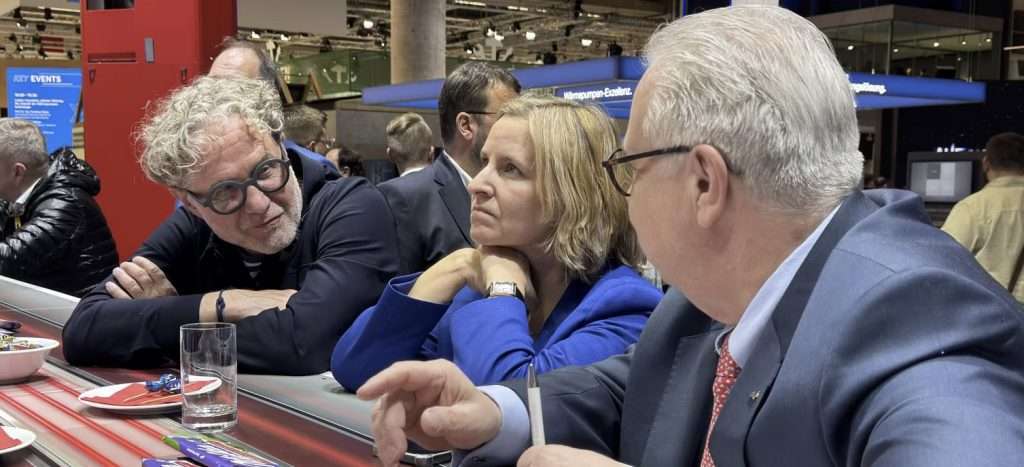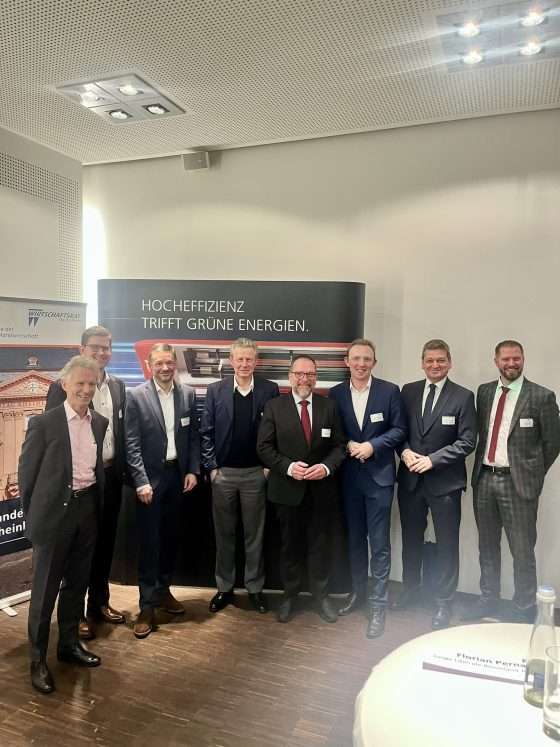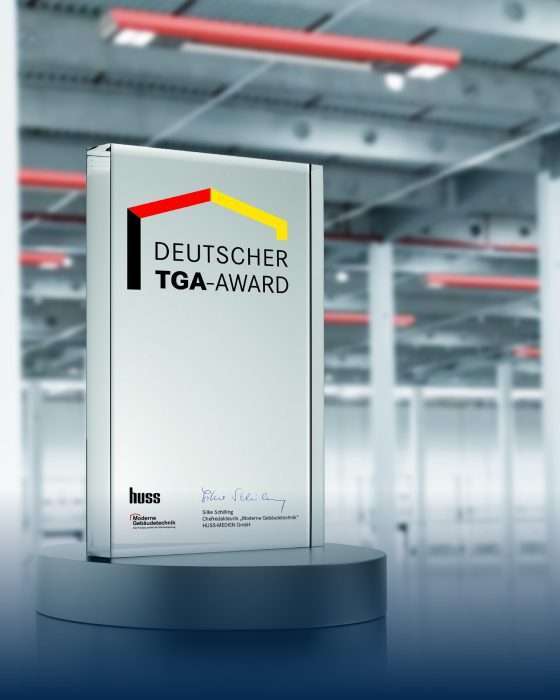High-profile visit to the "flagship company from Rhineland-Palatinate"

Professor Thomas Giel is convinced that the flagship company from Rhineland-Palatinate - KÜBLER GmbH - should be a stop on Climate Protection Minister Katrin Eder's tour of the trade fair. "If you have such an innovative company in Rhineland-Palatinate, then you have to visit it at the trade fair and show that Rhineland-Palatinate is also at the forefront of the heat transition. KÜBLER is a perfect example of this," says Giel. The professor of technical real estate management with a focus on technical building services and regenerative energy supply at Mainz University of Applied Sciences has been familiar with the technologies of the leading hall heating specialist from Ludwigshafen for many years. He advises the Ministry of Climate Protection in Rhineland-Palatinate and accompanied the Minister on her visit to the ISH, the world's leading trade fair for the sanitation and heating industry, which opens its doors to international experts and trade visitors every two years in Frankfurt am Main.
"I was naturally delighted that we have such companies in Rhineland-Palatinate that also develop solutions themselves, that are strong in research and development. A lot of energy is saved here and the fact that sometimes the sun doesn't shine or the wind doesn't blow with renewable energies and that there are solutions for this," said the Minister at the end of her meeting with Thomas Kübler, Managing Partner of KÜBLER GmbH.
The discussion between the Minister and Kübler was not just about the latest highly innovative developments from KÜBLER, which were presented under the title "Revolution in hall heating". More important was the exchange at a political level. Thomas Kübler has been campaigning since 2022 for the technical errors in the amendment to the Building Energy Act (GEG) to be rectified. "It is important that the right course is now set in the coalition negotiations. After all, innovative developments for the energy transition cannot be thwarted because the authors of the amendment failed to see the difference in building physics between multi-storey buildings and hall buildings," says Kübler.
The commercial and industrial building sector in particular is highly relevant for the energy transition, which is also reflected in the figures. Although this building segment only accounts for around two percent of all buildings in Germany, it consumes around 15 percent of building-related energy and causes the corresponding GHG emissions. An important lever on the way to the desired climate neutrality.
The special requirements for heating halls and the revolutionary possibilities of the new Fair.AIdH technologies are succinctly summarized in a short explanatory film, which Thomas Kübler presented to the Minister and her companions. The Minister is convinced that the ambitious climate targets in Germany need solutions like those from KÜBLER in order to be successful and achievable from an economic perspective. That is why she wants to actively support Kübler's commitment and forward the position paper to the relevant coalition partners. Now it's time to keep our fingers crossed for a GEG that gives the energy transition more acceptance and success.
Interested in our press photos?
Would you like to download all images from the article in the highest quality? Simply click on the button below and enjoy our press photos in the highest resolution!
-
While the public debate has so far focused heavily on residential construction, specific questions arise for industrial and logistics companies: what are the implications for large-volume non-residential buildings such as production and logistics halls? Thomas Kübler, an expert in energy-efficient hall heating systems, explains the key points from a practical perspective. Climate neutrality remains the guiding principle The German government is sticking to its goal of climate neutrality [...]
-
„Anyone who is nominated for the ‘Großer Preis des Mittelstandes’ belongs to the elite of German SMEs. This nomination alone is already an award of the highest quality,“ emphasizes Barbara Stamm, President of the Bavarian State Parliament. Outstanding achievements in five areas In the competition, the KÜBLER company is assessed in its entirety and its role within society. The [...]
-
Ludwigshafen - Clear messages, clear expectations: At the annual reception of the Rhineland-Palatinate Economic Council at the main site of KÜBLER GmbH, host Frederic Renz had clear words to say about the economic situation. „SMEs need what all companies in Germany urgently need: a clear direction and reliable political framework conditions. If you want economic growth, you have to create planning security,“ emphasized the Managing Director of the hall heating specialist. Around [...]
-
Heating halls efficiently, economically and functionally is a challenge. Because in these huge buildings with ceiling heights that often reach 20 meters, a lot of energy can quickly be consumed - energy that is expensive and, depending on the heating technology used, also causes high emissions. The building stock is often still equipped with inefficient and [...]





